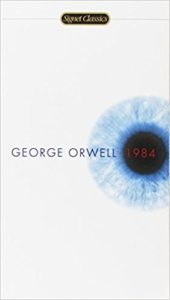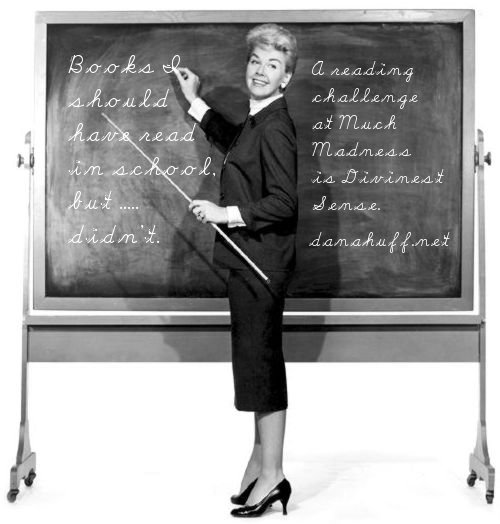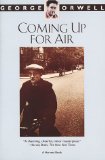 1984 by George Orwell, George Orwell, Erich Fromm
1984 by George Orwell, George Orwell, Erich Fromm Published by New American Library on July 1st 1950
Pages: 328
Buy on Amazon
Goodreads

Among the seminal texts of the 20th century, Nineteen Eighty-Four is a rare work that grows more haunting as its futuristic purgatory becomes more real. Published in 1949, the book offers political satirist George Orwell's nightmare vision of a totalitarian, bureaucratic world and one poor stiff's attempt to find individuality. The brilliance of the novel is Orwell's prescience of modern life—the ubiquity of television, the distortion of the language—and his ability to construct such a thorough version of hell. Required reading for students since it was published, it ranks among the most terrifying novels ever written.
1984 is one of those books I’d been meaning to get to for a long time, and I didn’t for one reason and another—partly perhaps because I didn’t much like Brave New World; partly because I knew it was pretty depressing; and partly because as an English teacher, I knew the plot and pretty knew much how it would end. It’s an occupational hazard. At any rate, the story is depressingly relevant in ways I’m not sure it was even ten years ago when I read Brave New World. I am glad to be able to cross it off my list. It’s one of those books people are surprised to learn I haven’t read. I guess most people read this novel in school, but I was never assigned many class texts to read until junior year when I moved to Georgia. I can’t even remember reading a book in English class at all in the tenth grade. I don’t feel there is any such thing as a required text that everyone should read. If we want to read classics, we will get to them when we get to them. On the other hand, I also see the value of books that show us who we are and help us understand ourselves and others.
I struggled with how to rate this book because while I can’t say I truly liked it—and it is possible, I think, to like dystopian fiction. I didn’t like the characters or really care too much about them. However, I can also admire it from a philosophical standpoint as a precursor to dystopian fiction that—in my opinion—is both more compelling and better written, such as The Handmaid’s Tale. I can also admire Orwell’s prescience in predicting the ubiquity of television and the creepy surveillance culture, though I’m not sure it existed in 1984 the way it does today. It’s hard to deny the book’s influence on our culture. Most distressing, perhaps, is the way in which our current president’s lies and the “doublespeak” presentation of “alternative facts” makes the book too alarmingly close to reality. Ultimately, I want to have too much faith in the people to prevent a vision like Orwell’s from happening in our time. Yet, Suzanne Collins has said about her series The Hunger Games that there isn’t anything in her books that hasn’t happened in history in one form or other. The same can be said of 1984. I am hoping we all stay vigilant.
 I’m not sure if I’ll count any additional books for the Beat the Backlist Challenge this year, as 2017 is drawing to a close. This is only the sixth book out of twenty that I had planned to read, but I’ll save my reading challenge progress reflection for another day.
I’m not sure if I’ll count any additional books for the Beat the Backlist Challenge this year, as 2017 is drawing to a close. This is only the sixth book out of twenty that I had planned to read, but I’ll save my reading challenge progress reflection for another day.



